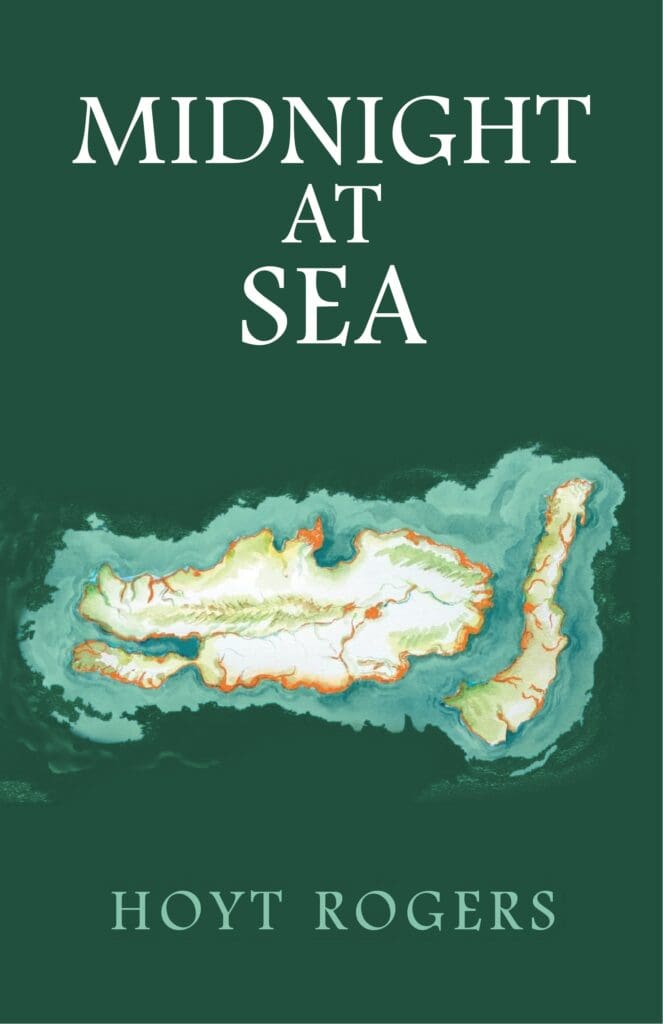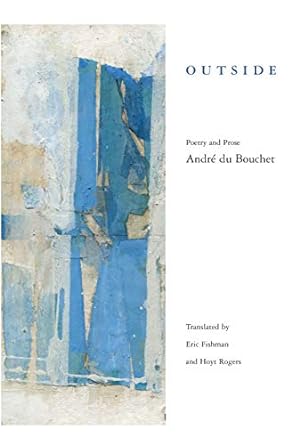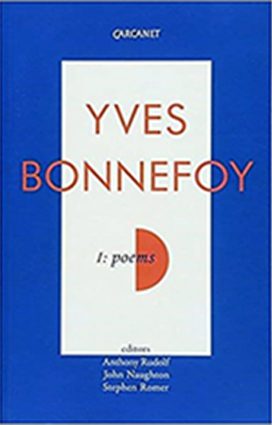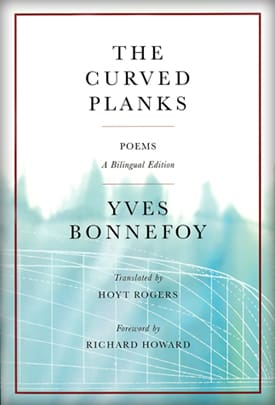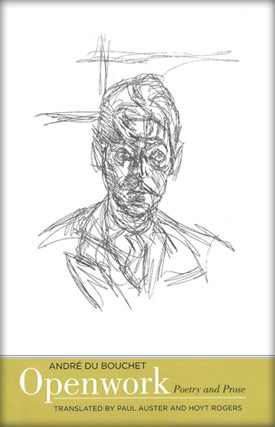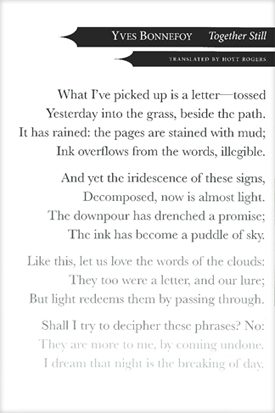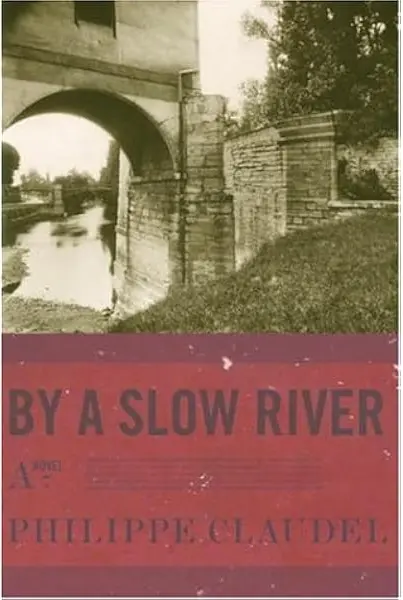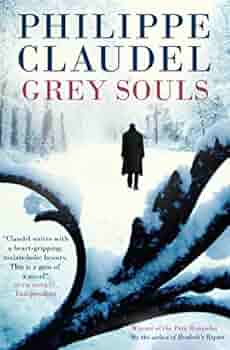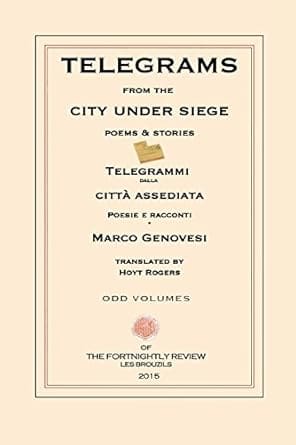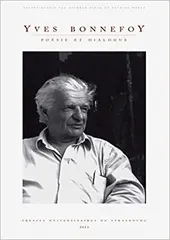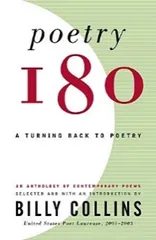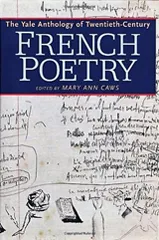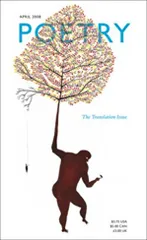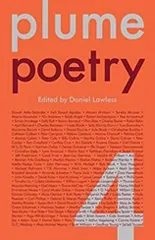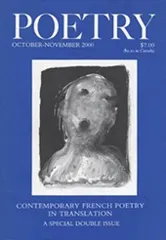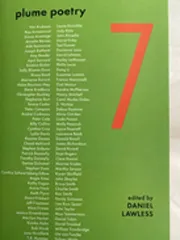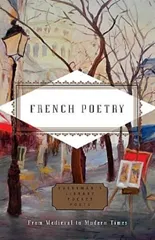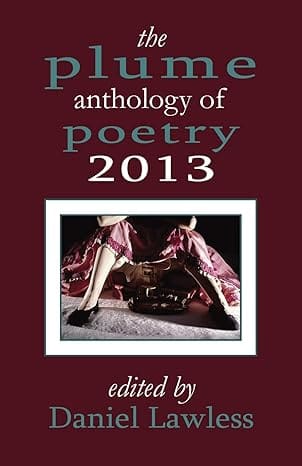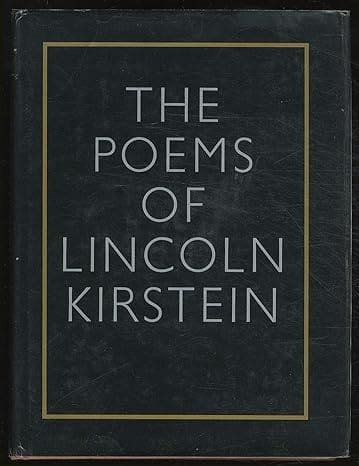
Writer, Translator, Scholar, Internationalist
FORTHCOMING
MIDNIGHT AT SEA
A novel by Hoyt Rogers (Spuyten Duyvil, 2026), the second volume of The Caribbean Trilogy (with guidance from Artemisia Vento and Frank Báez).
Midnight at Sea, the second volume of The Caribbean Trilogy, continues the saga begun in the first book, Sailing to Noon. Four of the nine narrators from the earlier novel—Lamia, Amado, Horacio, and Catulo—are joined by a new narrator named Virgilio, a mysterious painter occasionally mentioned in Sailing to Noon.
All five of the speakers in Midnight at Sea address their accounts to Chiara, who serves as a sixth narrator through her ongoing responses. While Sailing to Noon consists of monologues in the first person, Midnight at Sea moves the story forward in the second person; eventually, the final volume (Return to Day) will dramatize the tale in the third person. The first book of the trilogy, Sailing to Noon (1979-1991) focuses on nature and love as intermingled forms of embodied existence; the second book, Midnight at Sea (1991-2001) takes music, dance, and the visual arts as its leitmotivs; the third book, Return to Day (2001 to the present) will concentrate on society and politics, acted out on a three-tiered stage. As in the final pages of Midnight at Sea, bunraku, marionettes, hand-puppets, and Noh masks will also come into play.
Available
André du Bouchet: OUTSIDE
'A major poet, translator, and art critic, André du Bouchet (1924–2001) follows a rich tradition of avant-garde French writers whose work eludes being placed into any single school of thought... The new collection Outside, from Bitter Oleander Press, now joins Yale University Press's 2014 release Openwork as the English-language point of reference for Du Bouchet. The translation in Outside is an impressively seamless collaboration between Hoyt Rogers, who also translated Openwork with Paul Auster and Eric Fishman... The dialectical play of inside/outside that repeats throughout this bilingual text is enriched by Fishman and Rogers's choice to incorporate Du Bouchet's "Notes on Translation..." A successful collaboration on several fronts, Outside allows the reader to see the white of the page in a different light.' — Michael Overstreet, in The Los Angeles Review of Books
Outside is the name that Eric Fishman and Hoyt Rogers have chosen to give to their new selection and translations of Du Bouchet's poetry and prose... So much depends on all the white space between the words. "To draw a correlation with music," the translator Hoyt Rogers explains, "silence will take on a thousand different nuances, according to the context..." When you look through a window from the outside, you're not supposed to notice the mullions and the sills but straight into and past the transparent glass... Fishman and Rogers have translated the lights as well as the window frames. Their workmanlike English captures the careful carpentry of the original... It admirably echoes the energy and momentum of the French... The two translators have written separate, concurring introductions to the work, Fishman's as a foreword and Rogers's as an afterword. Both are informative; they provide both context and analysis.'
— Jim Kates in ArtsFuse
Following upon Hoyt Rogers and Paul Auster's translation of André du Bouchet's Openwork (Yale University Press, 2014), this fascinating new translation, Outside — by Rogers and Eric Fishman — draws attention once again to a seminal figure in postwar French poetry... In his afterword, Rogers offers a stimulating contrast between Du Bouchet and Wallace Stevens, gives some insight into Du Bouchet's non-French literary background (which comprised equally unexpected youthful exchanges with James Merrill and Richard Wilbur), and indicates analogies with the objectivist poet George Oppen... Rogers notes that "given his passion for shifting shapes, Du Bouchet produced audacious translations from the English, Russian, and German; though he naturally required that translations should be 'faithful to the originals,' he invited readers to see the semantic disjunctions between one language and another as opportunities rather than defects…" In their individual translations, Rogers and Fishman have themselves been resourceful when rendering Du Bouchet's polysemous imagery... Complementing the aforementioned Openwork, this new book offers a representative bilingual sampling (with a special emphasis on the poet's important notebooks), ranging over five decades...
— John Taylor, in Reading in Translation
Published by Bitter Oleander Press; Bilingual edition (June 7, 2020), Available from the publisher, Amazon, bookshop.org, and other outlets.
The Carcanet Press two-volume reader of Yves Bonnefoy's works, edited by John Naughton, Stephen Romer, and Anthony Rudolf, with numerous translations by Hoyt Rogers
1: Poems (2018)
Bonnefoy's publishing career spanned 63 prolific years as a poet, prose writer, and acclaimed translator from English; he was involved right up until his death in the editing of the Carcanet collection here under review.
This volume includes extracts from Bonnefoy's poetic prose and selections from the work of the last twenty years of his life. We have the evocative sequence 'The House where I was Born' (tr. Hoyt Rogers), which fuses all the different important places of his childhood and adulthood together and gives us a rare glimpse of his father, who died when Bonnefoy was thirteen... 'The Great Voice' was published when he was 89; this prose piece is a recollection of a woman with evident operatic training whom he heard singing in a modest church service in England. It again sets off the cycle of his longing for 'that other country': ‘What is a voice when it has turned into song?... What is a fiction that seeks to mesh with the immaterial whorls of this balcony between earth and sky?’ [tr. Hoyt Rogers]... Carcanet's volume regroups translations by a variety of poets and writers: John Naughton, Stephen Romer, Anthony Rudolf, Beverley Bie Brahic, Emily Grosholz, Galway Kinnell, Richard Pevear, Hoyt Rogers, and Susanna Lang. The poems are given facing pages with the originals, and this allows for a useful comparison with the French.
— Hilary Davies, in the Times Literary Supplement
'The editors and translators have done a wonderful job in the selection and simplicity of the selections. This is a book to appeal to both admirers of Bonnefoy's work and the general reader who is looking toward engaging with a lifetime of poetic output.'
— Andrew Taylor, in Stride Magazine
2: Prose (2020)
Yves Bonnefoy (1923-2016) is a poet readers return to for major feats of imagination and consolation. Less well known to English readers is his prodigiously assorted prose, ranging from art history to the imaginative hinterland of L'Arrière-pays. So Yves Bonnefoy: Prose (Carcanet), a selection expertly and economically edited by Stephen Romer, Anthony Rudolf, and John Naughton and translated by many distinguished hands, is an indispensable read. For Bonnefoy, poetry is "born of terror". Its job is “to re-establish openness,” and this matters because of what such openness to thought and feeling offers us. Not least, hope: "At the moment when so much night is gathering, could we be on the verge of the true light?"
— Fiona Sampson, in The Guardian
'Bonnefoy's essays on Giacometti and Poussin [tr. Hoyt Rogers], as well as his astonishing understanding of Mallarmé and Yeats, are all worth reading attentively... They are always written with the alertness and consciousness of a working poet, in the manner of Seferis or Heaney. Reading them always adds not only to our knowledge, but to our courage as poets.'
— Thomas McCarthy, in the Carcanet Press Blog
Published by Carcanet Classics, Available from the publisher, Amazon, bookshop.org, and other outlets.
YVES BONNEFOY, SECOND SIMPLICITY
Selected, translated, and introduced by Hoyt Rogers
'Second Simplicity is a handsome edition of Bonnefoy's recent work. . . A stunning presentation of a major poet.'
— Jim Kates, The Arts Fuse
'In these translations, Rogers is not looking to turn back the corners of the originals, gather up the bits from which they are assembled, and reassemble them on a new chassis. He experiences the poems, and with his wind, fire, water, and art, he crafts sibling poems.'
— Nicole Zdeb, The Quarterly Conversation
'As the foreword to his lucid and responsible translations of Yves Bonnefoy's late work reveals, Hoyt Rogers has mastered the grand cumulus of ulterior translation, criticism, commentary, and biographical circumstance which so formidably confronts, and possibly daunts, the interpreter as well as the common reader, so that indeed Second Simplicity is for seasoned practitioners of this master not only a sort of precocious capstone of the still-rising edifice of the Great Work but for newcomers to Bonnefoy an excellent, even an ideal, entrance to this writer's vast creation.'
— Richard Howard
'The final exemplar of a poetic legacy that begins with Baudelaire and Mallarmé, Yves Bonnefoy is the last figure standing in a monumental tradition that has shaped modern European literature. This lovingly supple and authoritative presentation by Hoyt Rogers of the rich, endlessly rewarding later phase of the great poet's work forms an invaluable contribution to our own poetry.'
— Jonathan Galassi
Second Simplicity is a magnificent collection by Yves Bonnefoy, one of the world's most important poets, in brilliant translations by Hoyt Rogers. The poems are dramatic and startling, apparently simple as falling snow and actually deep as life and time. Bonnefoy searches for truths beyond language, each truth an adventure in seeing the world anew. His vision is profound and yet bright with promise, for, as he observes, "Day is breaking, even beyond time."
— Grace Schulman
Published by Yale University Press; Bilingual edition (October 22, 2013), Available from the publisher, Amazon, bookshop.org, and other outlets.
HOYT ROGERS, THE POETICS OF INCONSTANCY
A study of Renaissance verse; erratum, p. 166, 'Scève and Labé' should read 'Scève and Du Guillet.'
'The transformation of Late Petrarchism from its earlier stages reflects a profound shift in cultural values—a "crisis of the Renaissance" that generated new perspectives in poetic theory and practice. Broadly, this book identifies a distinctive "poetics of inconstancy" that came to the fore at the end of the sixteenth century and pervaded the love verse of the age. … The book takes as its point of departure a single poet: Etienne Durand. Because of his frequently anthologized "Stances à l'Inconstance," he is often singled out as "the poet of inconstancy." However, The Poetics of Inconstancy identifies the theme of universal change as a hallmark of his contemporaries as well—the signal of a stylistic revolution that heralded the end of Renaissance verse.'
— Chapel Hill/University of North Carolina Press
'Par des explications de textes, minutieuses et très éclairantes, Hoyt Rogers invite au repérage des thèmes et des figures familiers pour prouver, en cette Renaissance finissante, des stratégies de la déviation et de la surprise dans une poésie brillante et en apparence répétitive, conduite à osciller entre l'excès de sens et le vide sémantique.'
— Danièle Duport, Revue d'Histoire littéraire de la France
'In the English-speaking world, this is the first study to link French Renaissance poetry with the Mannerism prevalent in European art during the late sixteenth century. With sure-footed erudition, Rogers traces the gradual decline of Petrarchan idealism—focused on a single, deified beloved like Laura or Délie—and the simultaneous rise of amorous inconstancy in Ronsard and his successors. His book concludes with an illuminating discussion of parallels between literary Mannerism in France and similar trends throughout Europe, epitomized by the thematic and stylistic multivalence of Shakespeare.'
— Roy Rosenstein
Published by University of North Carolina Press, Available from the publisher, bookshop.org, and other outlets.
YVES BONNEFOY, THE DIGAMMA
Translated and introduced by Hoyt Rogers
'Heralded as one of France's greatest poets, Yves Bonnefoy has been dazzling readers since the publication of his first book in 1953… His latest book of poetry in prose, The Digamma, fits wonderfully into his impressive oeuvre, offering his signature style of simple but powerful language... The collection includes haunting reflections on Poussin, Shakespeare, children, nature, vanished cultures, and the origins of art.'
— Seagull Books/University of Chicago Press
'You have not only been for me the intrepid reader who plunges daringly into the text to turn over the soil beneath it, to expand its meanings and develop its allusions, you have also been, and you remain, the one who reads the writer you are translating in such a generous, trusting way, that the author's work can blossom, with flowers not always obvious… within the language of origin. This trustfulness has complemented your rigorous demands during all the time you have been translating my poems—and my prose-pieces as well, that "poetry in prose" which sparks such a quandary for English but which has spurred you to so many fitting and graceful solutions.'
— Yves Bonnefoy, 'A Conversation with Hoyt Rogers,' Yale University Press
Published by Seagull Books, Available from the publisher, Amazon, bookshop.org, and other outlets.
JORGE LUIS BORGES, SELECTED POEMS
Translated by Alastair Reid, Hoyt Rogers, Mark Strand, and others; edited by Alexander Coleman
'Though universally acclaimed for his influential fiction, Jorge Luis Borges always considered himself first and foremost a poet. A decade before writing his earliest stories, Borges published his first book of poems. And even in that precocious debut, the twenty-four-year-old poet claimed for himself the principal themes that would preoccupy him for the next half-century: the cult of his ancestors and his "mysterious habit called Buenos Aires"; the enigma of time and the many yesterdays of history; the metaphysics of Schopenhauer and Berkeley; the now-familiar mirrors, mazes, and swords.
'This new bilingual selection brings together some two hundred poems—the largest collection of Borges' poetry ever assembled in English, including scores of poems never previously translated. Edited by Alexander Coleman, the selection draws from a lifetime's work—from Borges's first published volume of verse, Fervor de Buenos Aires (1923), to his final work, Los Conjurados, published just a year before his death in 1986. Throughout this unique collection, the brilliance of the Spanish originals is matched by luminous English versions rendered by a remarkable cast of translators: Willis Barnstone, Alexander Coleman, Robert Fitzgerald, Stephen Kessler, Kenneth Krabbenhoft, Eric McHenry, W. S. Merwin, Alastair Reid, Hoyt Rogers, Mark Strand, Charles Tomlinson, Alan S. Trueblood, and John Updike.'
— Viking Centennial Edition
'A generous volume of the poetry of Borges has now been published by Viking, edited by Alexander Coleman and translated by various hands… His poetry is deeply involved in the fiction, as one discovers in reading through his Selected Poems, where his abiding themes (the puzzle of identity, the illusory nature of the physical universe, the alluring yet maddening nature of love) and symbols (the mirror, the labyrinth, the tiger, the game, the double) are summoned and repossessed.'
— Jay Parini, The Nation
Published by Viking-Penguin Books, Available from the publisher, Amazon, bookshop.org, and other outlets.
Many of these translations were republished in The Penguin Classics Borges Series:
'The first two volumes—Poems of the Night and The Sonnets—are amazing collections. Quoting from the jacket copy, Poems of the Night is “a moving collection of the great literary visionary’s poetic meditations on nighttime, darkness, and the crepuscular world of visions and dreams, themes that speak implicitly to the blindness that overtook him late in life.” And The Sonnets contains, well, all of Borges’s sonnets, many of which are appearing in English for the first time.Beyond the contents though, consider the list of translators included in these volumes: Willis Barnstone, Robert Fitzgerald, Edith Grossman, Kenneth Krabbenhoft, Anthony Kerrigan, Stephen Kessler, John King, Suzanne Jill Levine, Eric McHenry, Christopher Maurer, W. S. Merwin, Alastair Reid, Hoyt Rogers, Mark Strand, Charles Tomlinson, Alan S. Trueblood, and John Updike.'
— Chad Post, Open Letter Books at the University of Rochester
The Penguin Classics Borges Series, published by Penguin Books, Available from the publisher, Amazon, bookshop.org, and other outlets.
YVES BONNEFOY, THE CURVED PLANKS
Translated by Hoyt Rogers, with a foreword by Richard Howard and two essays by Hoyt Rogers
'Yves Bonnefoy is one of the rare poets in the history of literature to have sustained the highest level of artistic excellence throughout an entire lifetime—more than half a century now and still counting. These recent poems, superbly translated by Hoyt Rogers, attest to his enduring greatness.'
— Paul Auster
'The first poetic associations of Bonnefoy, a poet often mentioned in the same breath as Paul Valéry, were with the French surrealists; but he has long since been a maverick of French verse, crafting stanzas as simple as they are resonant and rooted in everything from modernism to medieval song. This sequence is composed of poems that take in every form from prose to rhyme. Hoyt Rogers—who provides a long afterword, a translator's note, and a bibliography—offers a translation that is solid and clear.'
— Publishers Weekly
'I have been deeply impressed, reading Hoyt Rogers' translations of Yves Bonnefoy's Les Planches Courbes. They are much more than English versions of these strong and delicate originals—they are recreations that become distinct poems in English, a true and loving homage to their source.’
— Alastair Reid
— John Taylor, in the Times Literary Supplement
'This bilingual edition of The Curved Planks sets the French texts alongside English versions by the noted translator Hoyt Rogers, who has collaborated closely with Bonnefoy in crafting poems that re-create the freshness and vision of the originals. The volume also includes a preface by the renowned poet and critic Richard Howard and essays by the translator that situate The Curved Planks in the author's body of work. All assist in introducing the English-language reader to Bonnefoy's profound poetic gift.'
— Farrar, Straus and Giroux
Selected by The Library Journal as 'one of the two best books of translated poetry' for the year 2007.
Published by Farrar, Straus and Giroux, Available from the publisher, Amazon, bookshop.org, and other outlets.
ANDRÉ DU BOUCHET, OPENWORK
Selected, translated, and presented by Paul Auster and Hoyt Rogers; cover portrait and frontispiece by Giacometti
'This bilingual selection of poems and notebook jottings by André du Bouchet (1924-2001) is an exciting addition to contemporary French poetry available in translation. Openwork includes many poems that have remained unknown in English and, above all, shows the simultaneous coherence and evolution of the poet's work from the 1950s through his last years. The introduction by Hoyt Rogers is the most far-reaching essay on Du Bouchet I have ever read in English.'
— John Taylor, The Arts Fuse
'The translations themselves are marvelous… Here we have a poet whose lines often contain worlds… a master of the image… a pure pleasure to read.'
— Micah Mattix, Books and Culture
'In this finely edited selection of the poetry and prose of André du Bouchet, two distinguished translators, Paul Auster and Hoyt Rogers, enable our eyes and ears to absorb a profoundly authoritative language world of majestic beauty. Fragmentary, stripped down, elliptical, it presents an unmistakable individual in an unmistakable landscape.'
— Anthony Rudolf
'Rogers and Auster are vivid and eloquent translators… for an introduction to André du Bouchet in English, begin here.'
— Chris Miller, PN Review
Longlisted for the Best Translated Book Award 2015
Published by Yale University Press; First Edition (October 28, 2014), Available from the publisher, Amazon, bookshop.org, and other outlets.
YVES BONNEFOY, TOGETHER STILL
Translated by Hoyt Rogers with guidance from Mathilde Bonnefoy; afterword by Hoyt Rogers
"Together Still is Yves Bonnefoy's final poetic work, composed just months before his death. The book is nothing short of a literary testament addressed to his wife, his daughter, his friends, and his readers throughout the world. In these pages, he ruminates on his legacy to future generations, his insistence on living in the present, his belief in the triumphant lessons of beauty, and, above all, his courageous identification of poetry with hope."
— Seagull Books/University of Chicago Press
"'… And that light, / When it stands still, is happiness.' Maybe that light is happiness, but light, in Bonnefoy's personal aesthetic lexicon, is rarely so stable, so still. Elsewhere in this light-filled book, we also glimpse 'the thing still awaiting its name.' Translator Hoyt Rogers rightly singles out the sonnet sequence 'Together Music and Memory' as Bonnefoy's finest."
— Kurt Heinzelman, World Literature Today
"Hoyt Rogers displays extraordinary skill as a translator of this oeuvre, given the precision and imaginative daring of his choices, his metrical ear, and his multilayered knowledge of Yves Bonnefoy's work."
— Marilyn Hacker
Published by Seagull Books/University of Chicago Press, Available from the publisher, Amazon, bookshop.org, and other outlets
Les Âmes grises, a novel by Philippe Claudel
translated by Hoyt Rogers, in two editions, Knopf and Maclehose
This novel by the celebrated writer and film director Philippe Claudel appeared in Hoyt Rogers's translation at Knopf-Random House in New York, with a title chosen by the editors; and then again at MacLehose Press in London, Anglicised and with a title corresponding to that of the French original.
Click Book Covers to Order
"A bestseller in France and winner of the Prix Renaudot, Grey Souls is a mesmerising and atmospheric tale of three mysterious deaths in an oddly isolated French village during World War I. The placid daily life of a small town near the front seems impervious to the nearby pounding of artillery fire and the parade of wounded strangers passing through its streets. But the illusion of calm is soon shattered by the deaths of three innocents - the charming new schoolmistress who captures every male heart only to kill herself; an angelic ten-year-old girl who is found strangled; and a local policeman's cherished wife, who dies alone in labour while her husband is hunting the murderer. Twenty years later, the policeman still struggles to make sense of these tragedies, a struggle that both torments and sustains him. But excavating the town's secret history will bring neither peace to him nor justice to the wicked." — MacLehose Press
"War has no frontiers; its mortal ravaging is a contamination that wafts far beyond the guns. In this grave, achingly beautiful novel by Philippe Claudel (gravely and beautifully translated from French by Hoyt Rogers), a village policeman writes out his sorrow-laden journal of these years... Neither he nor his village are given a name; the nearby town where much of the story takes place is called V. It gives the novel its air of universal fable: baleful and tragic yet curiously enlivening." — Richard Eder, The New York Times
"I found Grey Souls an utterly compelling read. The ending took my breath away although for some reason I couldn't help feeling I should have seen it coming. The gorgeous writing is helped by a superb translation." — David Griffiths, Professor at the University of Surrey
Published by Knopf-Random House and MacLehose Press, Available from the publishers, Amazon, bookshop.org, and other outlets
The True Life of J. S. Bach
By Klaus Eidam; translated from the German by Hoyt Rogers, with a translator's note
“Munich-based TV documentary scriptwriter Eidam offers a new interpretation of the great organist and composer, Bach. This book provides a plainspoken reexamination of the basic conditions of the composer' s life. Eidam reminds readers repeatedly that Bach, considered today to be a divinely inspired and peerless composer, did not make enough money to pay for his own gravestone. He provides us with a provocative alternative to standard studies by scholars like Malcolm Boyd and John Butt.” — Publishers Weekly
"This engagingly eccentric biography by German playwright and television scriptwriter Klaus Eidam performs the valuable service of knocking off the dust accumulated around Bach (1685-1750) by generations of writers more concerned with their own musical, religious, or political theories than the particulars of the composer's life. (Translator Hoyt Rogers has maintained the author's contentious tone in English.) Locating Bach firmly in the context of the gritty intrigues by which composers got and kept musical positions in 18th-century Germany, Eidam also manages to convey appreciation for his timeless genius." — Wendy Smith, musician and educator at the Glasshouse International Centre for Music.
"This is the only biography of Bach to create a three dimensional figure out of him. Eidam's style is engaging, lively, and splendidly translated by Hoyt Rogers. Eidam necessarily chides earlier scholarship which has tended to leech the humanity out of Bach's story. He creates a portait built out of careful reading of sources, original scholarship, coupled with (and here lies Eidam's real contribution) an intelligent understanding of artistic creativity and its endless struggle against bureaucracy; which lies at the core of Bach's 'passion'.His description of Bach's end and his widow's struggles may well move the reader to tears. This comes from clear scholarship and good writing, as well as a unique, genuine sympathy with the subject of the biography. Bach deserves as much." — Mark Ringer, musicologist and Distinguished Chair at Marymount Manhattan College, author of Bach’s Sacred Cantatas.
Published by Basic Books, Available from the publisher, Amazon, bookshop.org, and other outlets
Last Night I Dreamt I Was a DJ
By Frank Báez
Translations by P. Scott Cunningham and Hoyt Rogers
"Last Night I Dreamt I Was a DJ (2014), is the debut volume of poetry in North America by Frank Báez, presented in the original Spanish with English translations by P. Scott Cunningham and Hoyt Rogers. A former resident of Chicago, Báez delights in the cultural influence of the United States, while simultaneously recognizing the failed exportation of the "American dream" to his home of Santo Domingo, where his lyrical wit and narrative lament takes center-stage. Báez's poems are heartfelt and hilarious. They laugh at the spectacle of their creator and his struggle to exist as a poet in a world hostile to poetry, and they dare to talk back to the empire of capitalism with the voices of the voiceless.'
Jai-Alai Books
Published by Jai-Alai Books, Available from the publisher and other outlets.
Telegrams From the City Under Siege,
Poems & Stories by Marco Genovesi
translated from the Italian by Hoyt Rogers
Poetry and fiction from one of Italy's most accomplished young writers, "a man influenced as much by Jim Thompson as by Dante," says The Fortnightly Review.
“We of the younger generation are entirely products of the mass culture in a way that previous generations have not been. And that’s a good thing, I think. The problem is that the elite culture has become more and more restricted and isolated, and so it has lost its desire to innovate.” —Marco Genovesi
'At the age of twenty-three, Marco Genovesi, like many young writers in Italy, has sought inspiration in outside sources. While he draws on a wide variety of English-language authors, from Bukowski to Woolf, he has also turned to Japanese literature, especially the haiku poets and the novelists Kawabata and Murakami. In Genovesi’s poems and stories, the latter’s focused imagery and clipped phraseology run counter to the exuberant Anglo-American strain. By adroitly combining these disparate elements, Genovesi achieves a wholly original voice. ' — Hoyt Rogers
“Genovesi makes use of diverse perspectives: spaces that are wide-open or infinitely small, present or post-apocalyptic, distorted by alcohol or clear as day. His harmonization of narrative rhythm with an acute sense of place quickly wins the reader's empathy.” —Michele Casagrande
“The author explores human psychology and relationships. I would recommend this book to anyone who likes character-driven works, where you have to think for a bit after finishing a story to figure out how it made you feel. Excellent work in general, a thoroughly pleasurable read.” —Irina Jrbashyan
This is a bilingual (Italian and English) edition from Odd Volumes, Available from the publisher, Amazon, bookshop.org, and other outlets
